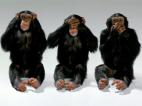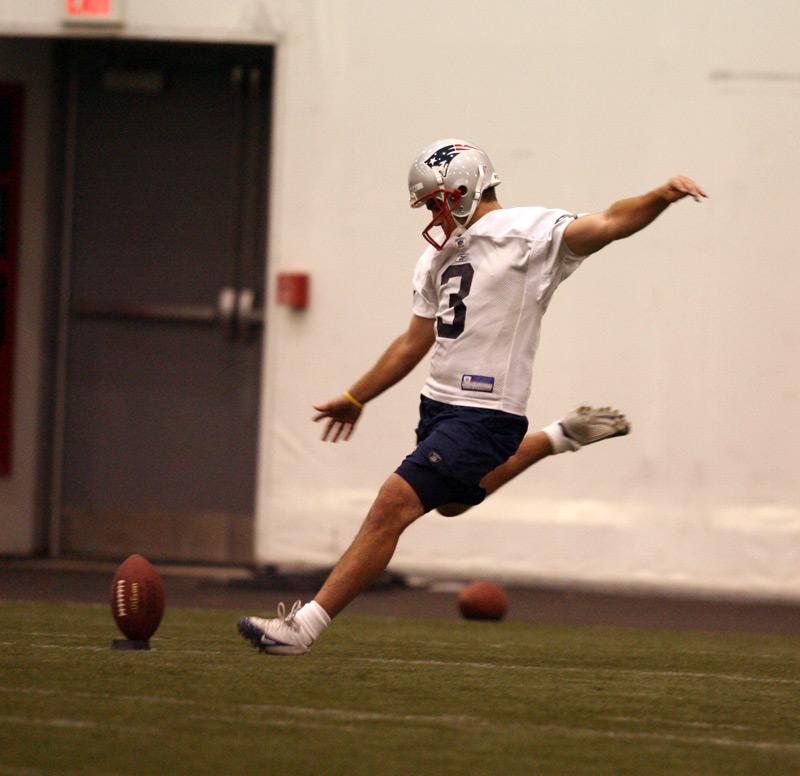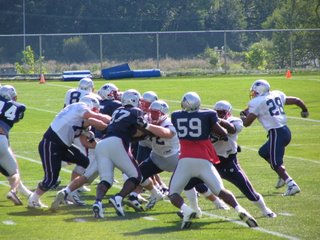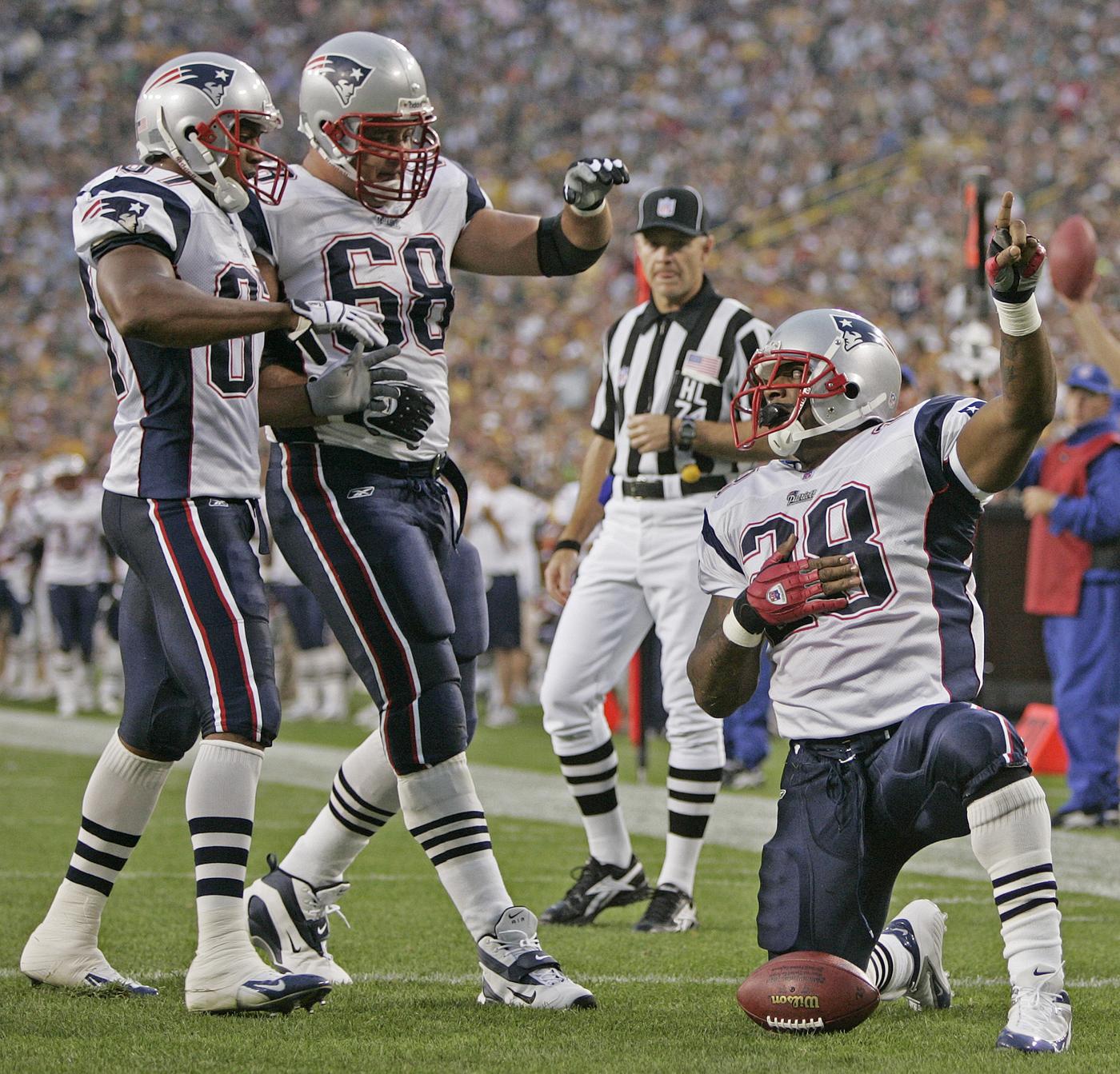The case for
Monkey See – Monkey Sue
written by region 10 debater Silas --------
www.trialmonkeysforamerica.blogspot.com, February 4th, 2006
On April 9th, 2007 a zoo keeper misapplied a Band-Aid on a 14 month old Chimpanzee. Two hours later the Band-Aid fell off. The zoo keeper got away with paying no compensation.
On August 1st, 2003 a doctor splint the wrong leg of a 400 pound, 36 year old monkey. The Monkey suffered physical and mental pain for 12 months until someone noticed that he was using two sticks as crunches. The doctor paid no compensation even though he was thrown to the lions by the Zoo staff.
On July 51st, 2005 two monkeys were switched while being sedated before surgery. Both went to get the others operation. Both died. The hospital paid nothing. The law prohibits mammals from seeking justice in all such cases.
For this reason and so many more we – the affirmative team stand strongly resolved: That medical malpractice law should be reformed in the United States.
Observation 1- Definitions The following definitions will come from www.therightdefinitions.blogspot.com, The elite guide to knowing words, ©2006.
Medical malpractice- anything adverse that occurs that causes an animal emotional or physical distress
Significant- large, also known as a large percentage of a small class
Animalia- taxonomic kingdom comprising all living or extinct animals
Justice- a system where all, no matter of their class, income, or race are allowed a free and fair trial
Observation 2- Harms
1) 89% percent of mammals are refused justice in the current system www.zookeepers&werdosforjustice&fairness.com, July 36, 2006
“In the current system, only a small percentage of the inhabitants of the United State’s are allowed a trial. In a recent Column (“Court system: picnic goodies for humans”) on the ruinous affect- ruinous to everybody but humans- of the epidemic of injustice in the court system, we noted that a large percentage of mammals are refused justice in the current system. “ 89% percent of mammals are refused justice” according to James P. Expert. “Most, if not all of these cases where mammals are hurt by medical malpractices are not filed because they simply the lack the right to a trial!”
2) Financial harms and injustice to blameless Mammals
USA Yesterday, February 14, 2006
It took the monkey just four minutes to decide he needed a trial. Can he sue for lost time, wages and the fact that his banana consumption went through the roof, (to the tune of 46,000) No!! The system does not allow for it. His losses are not recognized as an injury. The system does not view the monkey as the real victim in all cases. This is inherently unfair!
3) Injustice in the justice system
www.medicalmalpracticefacts.blogspot.com, February 14, 2006
“With the prospects of 10,000 medical malpractice torts a year, and all of those suits being filed by humans, for humans; one can readily imagine the injustice in our court system which was once the envy of the world. Even if, for example, if a chimpanzee lost all the feeling in his medulla oblongata (the part of your brain that carries information) after a blotched surgical operation, he would still have no right under the current system to compensate himself for the damages done - in a trial. This at least violates the saying “monkey see, monkey do.”
Observation 3- Inherency
1) Lawyers are hypocrites for not supporting mammals being in the court system
www.trialmonkeyslawfirm.com/net September 5th, 2006
“Think of it, if you were a monkey and you got hurt would you not want to sue? Lawyers are hypocrites for not supporting mammals being in the court system.”
2) Monkeys can only sue in the current system for hate crimes
Silas --------, (book) A legal system gone bananas, March 12th, 2000
Sad as it may seem, monkeys and other mammals can only sue if they have a hate crime done against them. For insistence, a monkey that gets peanuts throw at him because he’s a monkey could bring his case to court for a hate crime violation (code 409), but that same chimp would have absolutely no right under the current system to sue his doctor for blotching up his gastric surgery operation.
Observation 4- Plan
To solve these problems, we offer the following plan, to be implemented by any necessary constitutional means; including if so needed, abolishing the constitution.
Agency- 50 state legislatures and state courts, Zoo’s and other mammal living facilities
Mandates- All 50 states shall allow mammals to sue, insuring justice for all. Court appointed experts on mammal behaviors and sociology shall assist the mammal’s case before the court.
2: A defendant charged with committing malpractice against a mammal plaintiff shall be considered guilty until proven 190% innocent.
3: The loser side of the litigation shall pay for the other side’s banana consumption.
Funding- funding will be received through a doubling of the income tax, the death tax, and the living tax.
Enforcement- Anything/one not in compliance with this plan, by any form, way, or thought, shall be put in prison without a right to a trial. They shall have the option of a firing squad or/and He/She shall receive a sentence of 900 years, and shall eat no more then 3 portions of stale bread and garlic a day.
This plan will insure liberty and equality for all. Fulfilling what our founders intended as stated in the United States constitution, “that all… should be treated equal”.
Observation-5 Solvency
A) The potentially overwhelming costs of our plan on the legal system is not a problem
http/andthatsmyscream.msmbc.org, Chris Matt.Yussa, PHD, Professor at all the major universities that impress debate judges, further qualifications can be made up if needed, August 51, 2007
Opponents of the Monkey See, Monkey Sue plan often charge that if mammals were allowed to bring their cases to court the costs would be overwhelming. “Good!” said Mr. Smith, Head of Trial Monkey lawyers of America; “the court could use some more areas to spend money. It’s not like the United States has a budget deposit or people are already paying enough taxes. Why, when my next-door neighbor can afford to buy food and own a car, and my other neighbor recently bought his college-age son a cardboard box to live in there’s certainly no problem with “high” taxes or anything of that sort.”
Observation-6 Advantages
1) Letting Mammals into court is an effective and easy solution to world peace.
The New Ywork Timx, Ann E. Eelldeson, Why my pet won me a million dollars – in Siberia, February 14, 2006,
There is a highly and effective and easily implemented solution to world peace. The remedy is a general allowing of mammals into court, similar to that of Siberia’s. If mammals are allowed into court they can be reimbursed for the harm caused to it; this will indeed make world peace.
2) Mammals in the court system solves for uncompensated harms in the Status Quo Walter Bernstein V. Vidmark, February 14, 2006
“As Siberia has recognized, the arguments in support of the Mammal sue principle are overwhelming. They include basic fairness, compensation of the victimized opponent, deterrence of the tactical non-right to a trial and legal maneuvers, and provision of the right to a trial to some of the most severely hurt in our society, mammals. It’s long past time this nation joins the rest of the world in adopting this principal. ”
3) 400,000 Mammals will receive instant justice from the inaction of this plan
www.snsnews/ramdompoll/http.com, July 7, 2006
If Mammals where allowed to sue you would see literally thousands lining up to the court house door demanding to exercise their new civil right. Early estimates are around four to six hundred thousand.
So as you can see, the current system fails miserably. Mammals go uncompensated even if their hurt. Why?
Their right to sue is nonexistent.
Our plan changes that. Yes judge. And if you feel justice, freedom, liberty and the right to a trial by jury are important – then I would urge the adoption of our plan.
But the question really comes down if you where a monkey and you got hurt, would you not want to sue? That’s what our case boils down to. Justice.
Thank you and I now stand open for cross-examination.
Labels: debate, other
 I went to a Pawsox game last night with H.K.P. and Comrad, plus another blogger that wish's to keep his identity secret... Well anyways, we arrived about 10 min’s before the game started and exchanged our rained out game tickets for new ones. (which actually moved us up 10 rows!) It was pretty cold - about 42 deg's with the wind whipping around the stadium. That was probably a big factor – other then that the Yankees where playing the Red Sox – for the lack of a big crowd. There were only a couple thousand and a lot of seats were empty.
I went to a Pawsox game last night with H.K.P. and Comrad, plus another blogger that wish's to keep his identity secret... Well anyways, we arrived about 10 min’s before the game started and exchanged our rained out game tickets for new ones. (which actually moved us up 10 rows!) It was pretty cold - about 42 deg's with the wind whipping around the stadium. That was probably a big factor – other then that the Yankees where playing the Red Sox – for the lack of a big crowd. There were only a couple thousand and a lot of seats were empty. Adam Stern - played on team Canada - helped them whip team USA... sounds like a great player for the Sox!
Adam Stern - played on team Canada - helped them whip team USA... sounds like a great player for the Sox!

























